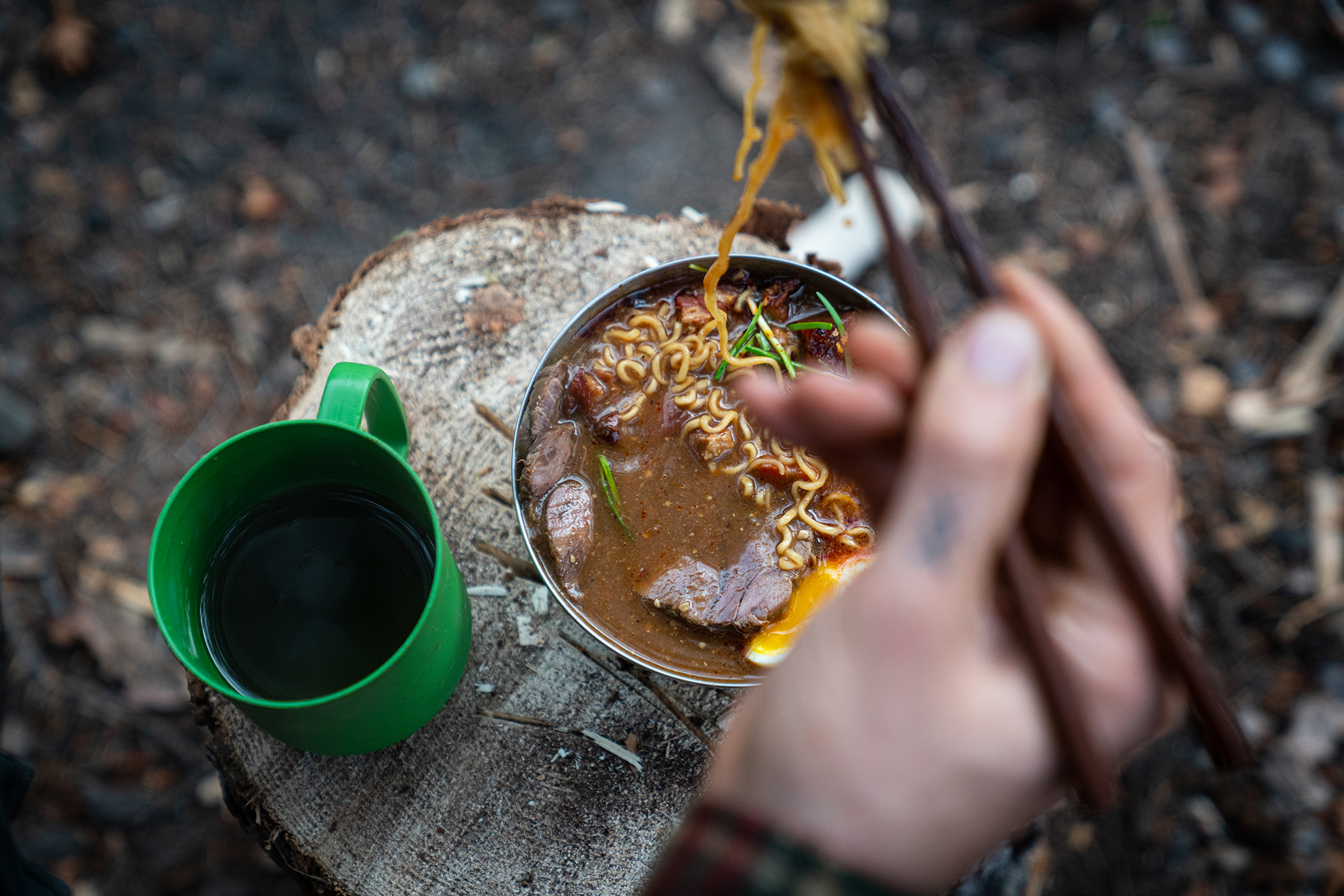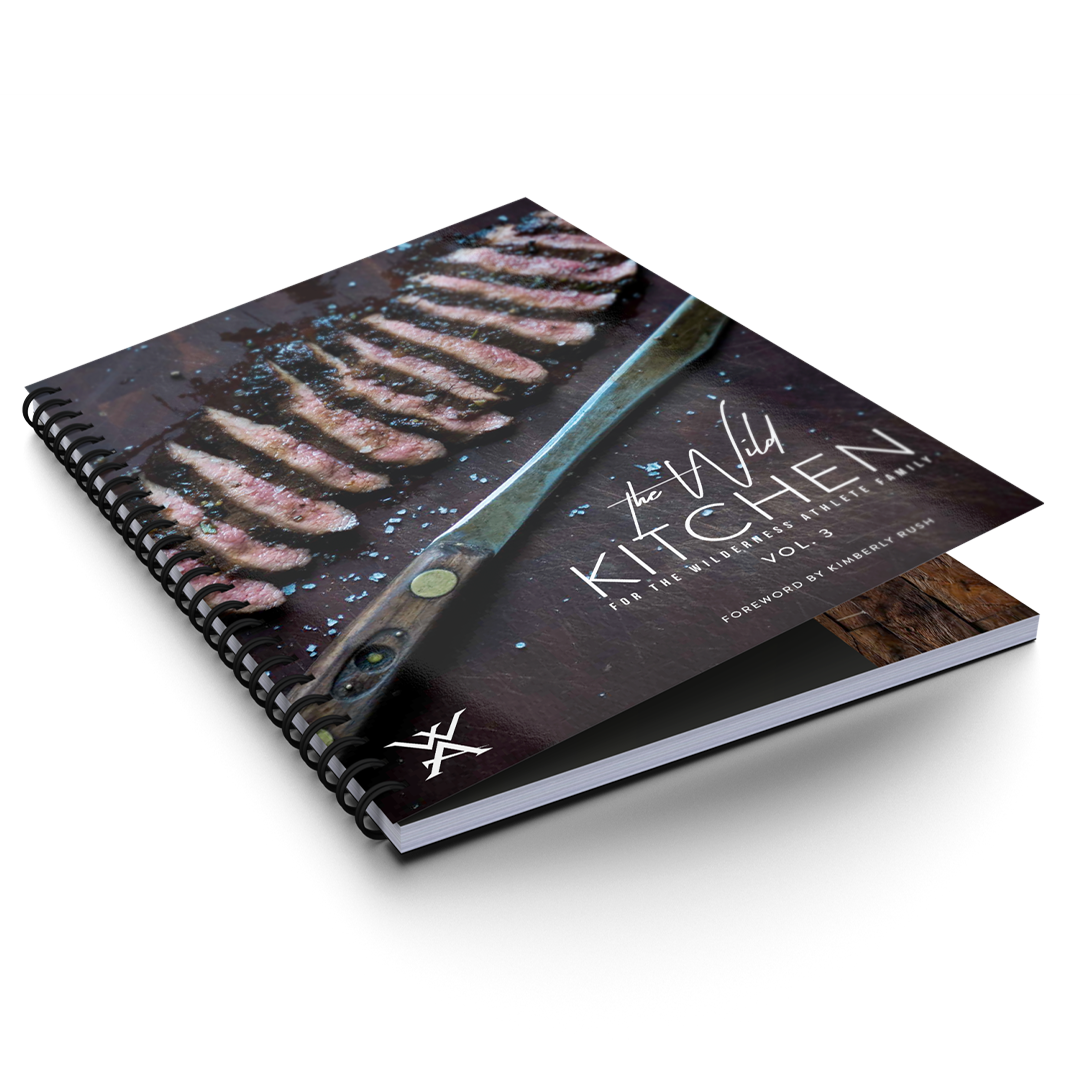This wild game ramen is relatively easy to pull off in the backcountry, not much different than cooking a House meal really.
I love a good Mountain House Mac and Cheese in the backcountry after a long day. There, I said it. I love House Mac and Cheese. It isn’t the most nutritious thing to put into my body and my gut often tells me that in a number of ways but it checks the boxes. Salty, rich, fatty, lightweight and most importantly easy to prepare.
The challenge I set out for myself this year is to create some simple meals that use minimal fresh ingredients and gets me out of the Mountain House cycle. My preferred method to hunt is backpacking so weight will always be a consideration. Finding a balance between freshness and weight will no doubt be the biggest challenge.
On a sheep hunt a couple years back I packed some Moroccan stewed mountain goat as our first meal. This was a frozen block of stew, it wasn’t lightweight but it stuck to our ribs and started the trip off right. Never underestimate the power of real food on morale. I am taking the same approach this year as I tackle this food challenge. I am willing to pack some extra food weight on shorter hunts/scouting trips as it will help to get me in shape for the real hunts.
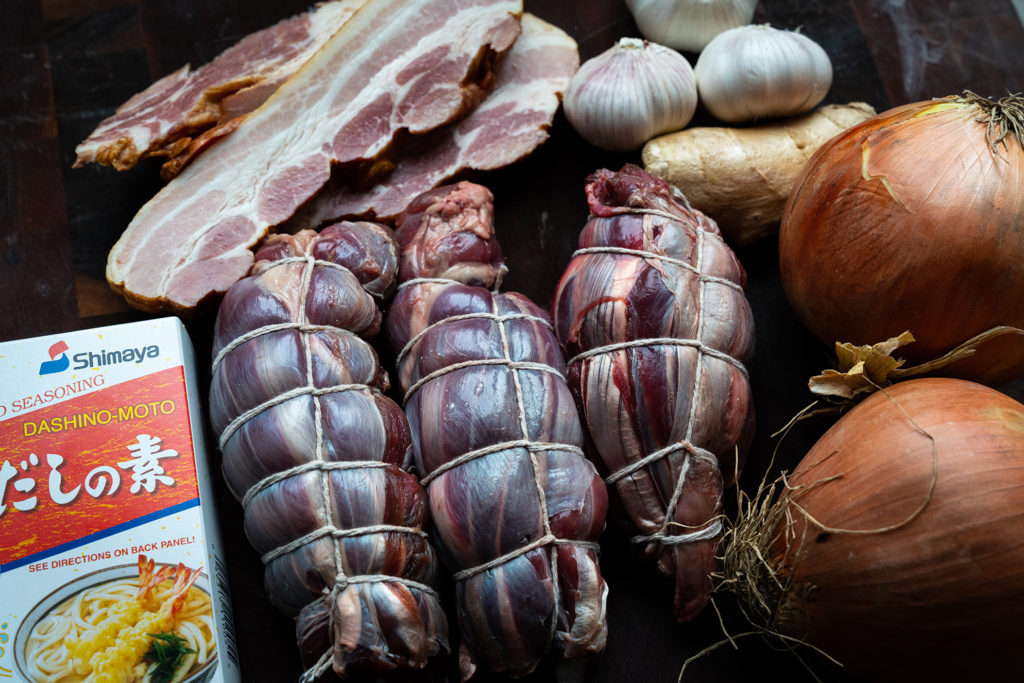
For my first experiment I decided to do a wild game ramen noodle dish with blacktail deer. Combine some fresh food and some freeze dried foods to try and hit that balance.
I didn’t know what to expect and it knocked my wool hiking socks off. This will be a staple for me for years to come and I don’t make that claim lightly.
There are a couple of ingredients in this recipe that might be new to you. I don’t use these ingredients unless they make or break the dish and in this case they do. The shelf life on all of these items is really good and you can find them on Amazon, links at the bottom.
A traditional ramen broth is made using bones and fatty cuts of pork. The gelatine and fat from these cuts is what gives the broth its signature texture. This recipe uses some good quality bacon but we omit the pork bones. To replicate the viscosity of the real deal, this wild game ramen recipe relies on the pulp from the cooked onions to thicken it. Getting the most out of this technique requires a fine mesh strainer.
Serves 2
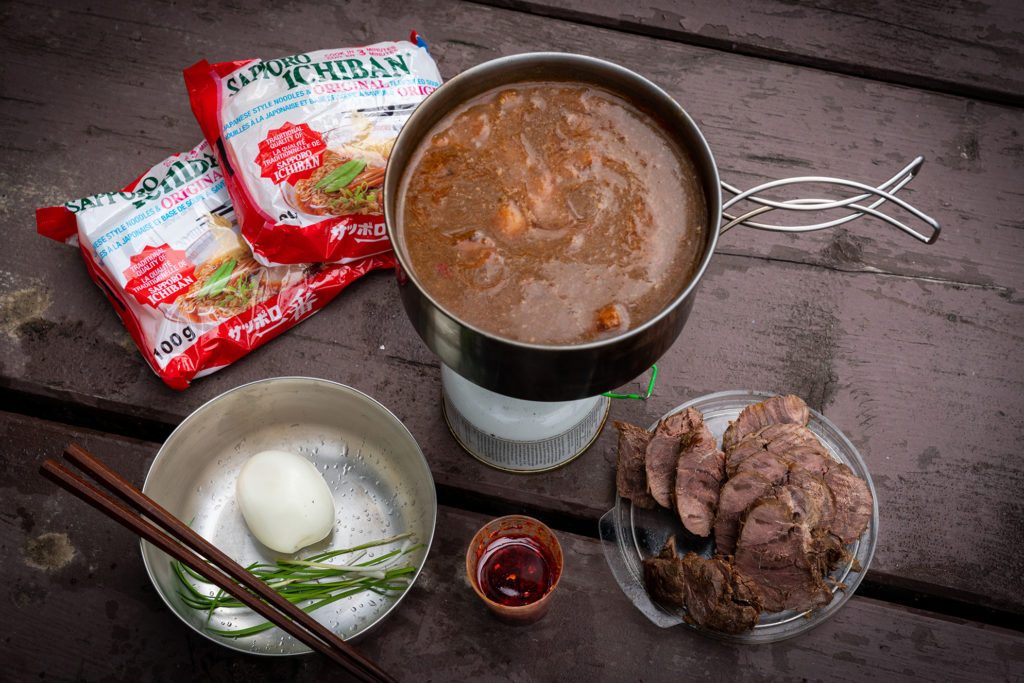
Ramen Broth
Ingredients
- 2 Tbsp Oil
- 1 1/2 pounds Deer shanks, cleaned, rolled and tied. See the picture.
- You can substitute any wild game shank for this recipe. Other braising cuts will work but shanks are preferable.
- 10 oz Slab bacon, 3/4” diced.
- Use a high quality cold smoked bacon if possible.
- 2 Onions, cut into 1” thick rings. Keep these rings together.
- 3 heads Garlic, cut through the equator.
- 1 pc Ginger, skin on, 1/8” sliced. Approximately the size of your index and middle fingers combined
- 3 quarts Water
- 1 1/2 Tsp Dashi powder
- 2 Tbsp Red miso paste
- 2 Tbsp Low sodium soy sauce.
- Regular soy sauce works, just add it incrementally and taste as you go.
- 2 Tsp Mirin cooking wine
- 1 Tsp Toban Djan
Directions
- Heat a large cast iron pan over high heat.
- Once hot, place the onion rings flat side down into the pan and char til they are black. Flip and repeat, work in batches in necessary to char all the onions.
- Meanwhile, heat the oil in a large dutch pot over medium hight heat and sear the shanks until brown on all sides.
- Remove the shanks and set aside.
- Add the diced bacon to the pot and roast until brown on all sides.
- Remove the bacon and set aside.
- Add the shanks, water, charred onions, garlic and ginger to the pot and bring to a simmer.
- Simmer for 2-3 hours or until the shanks are easily pierced with a knife and feel tender. Add water if necessary to keep the shanks covered during the cooking.
- Remove the shanks, cut the string off, wrap tightly with cling film while they are hot and freeze.
- Reduce the broth down to 1 quart and strain through a fine mesh strainer. Shake the cooked onions vigorously in the strainer until the pulp breaks down and strains into the broth. This will thicken the broth.
- Season the broth with the remaining ingredients and freeze for backcountry transport.
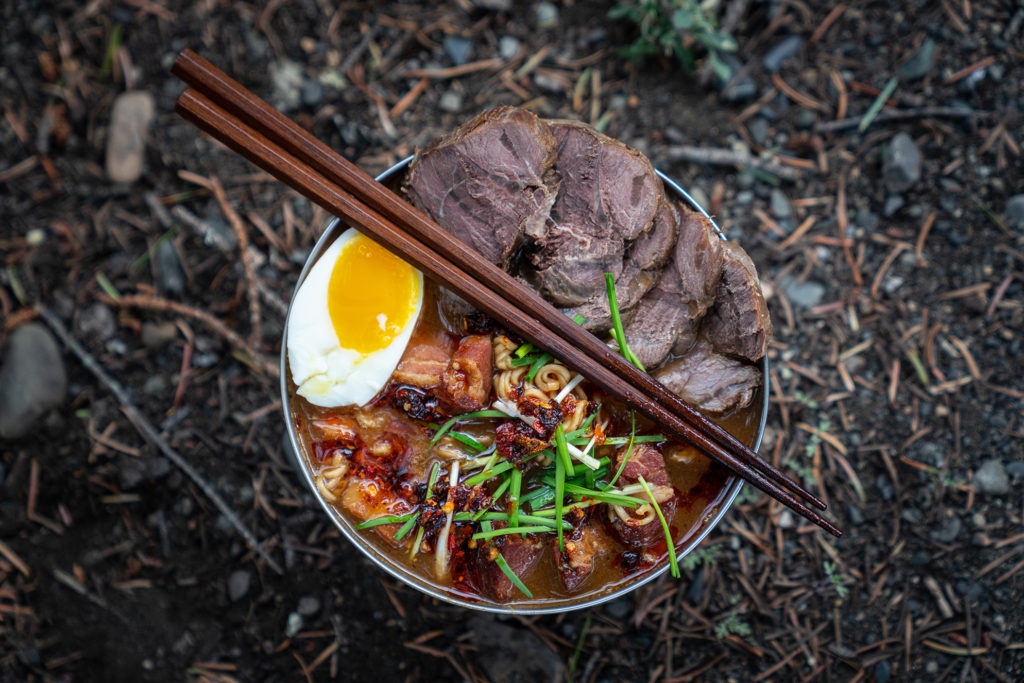
Soft Egg
This isn’t mandatory but if you love a good traditional ramen then this really makes it. The cook time is based for sea level so if you live much higher you will want to add an extra minute.
Ingredients
2 Eggs
Directions
- Bring a small pot of water to a boil.
- Using a spoon, gently lower the eggs into the water and simmer gently for exactly 7 minutes.
- Remove the eggs and transfer to a bowl of ice water.
Cooking in the Backcountry
I bring chopsticks for this dish, they are light and they make the experience that much better.
For garnish I highly recommend sesame oil, crispy chili oil and some fresh greenery. In this case we were able to find some wild spring onions but green onion, finely shaved cabbage or even shaved broccoli would work.
- Slice the cooked shanks against the grain at 1/8”-1/4” thick.
- Bring the ramen broth to a boil and add your instant noodles of choice.
- Simmer the noodles until they are cooked, approximately 2 minutes.
- Transfer to a bowl and garnish as per the picture.
Ingredient Sources
Dashi Powder – Click Here
Red Miso – Click Here
Mirin – Click Here
Toban Djan – Click Here
Crispy Chili Oil – Click Here

